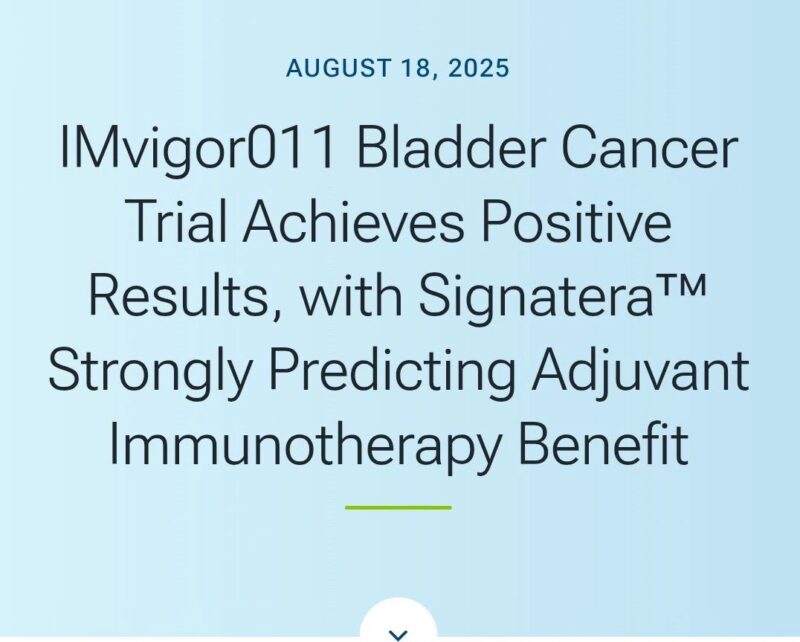Amol Akhade, Senior Consultant at Fortis Hospitals Mumbai, shared a post on LinkedIn:
“IMvigor011 – A Landmark in Adjuvant Bladder Cancer
The press release for IMvigor011 has created waves in the uro-oncology community. For the first time in a Phase III trial, ctDNA-guided adjuvant immunotherapy has shown both disease-free survival (DFS) and overall survival (OS) benefit in high-risk muscle-invasive bladder cancer (MIBC) post-cystectomy.
Trial design in brief:
Patients underwent cystectomy for high-risk MIBC. ctDNA testing (Signatera) was performed post-surgery. ctDNA+ patients were randomized to atezolizumab vs placebo. ctDNA– patients were observed with surveillance only. Results: ctDNA+ patients derived clear DFS and OS benefit from atezolizumab, while ctDNA– patients were safely spared treatment.
This builds directly on the lessons of prior studies:
IMvigor010 (atezolizumab in all-comers): Negative trial – no benefit when treatment wasn’t biologically enriched. CheckMate-274 (nivolumab in all-comers): Positive DFS benefit, now established as the standard of care worldwide. However, OS benefit remains immature and unproven to date. IMvigor011: Precision-guided approach – only treat the ctDNA-positive patients. A smart strategy that turned a previous negative into a positive outcome.
Why this matters:
Adjuvant immunotherapy is no longer just about giving treatment to every “high-risk” patient. With ctDNA, we may be able to target therapy to those who truly need it, while sparing others unnecessary toxicity and cost. This could redefine adjuvant strategies across solid tumors, not just bladder cancer.
Critical considerations:
Comparator: Using a placebo in ctDNA+ patients can be debated, since adjuvant nivolumab is already approved in this setting.
Generalizability: Would nivolumab show similar benefit in ctDNA+ patients? Likely yes, but untested. Assay dependence: Results are tied to the Signatera platform – how will this translate in practice across regions and labs?
Access: ctDNA testing remains expensive and may not be feasible in many health systems, particularly in low- and middle-income countries.
False negatives: A small proportion of ctDNA- patients may still relapse – how do we manage them?
The bottom line:
IMvigor011 doesn’t change the fact that adjuvant nivolumab is the current global standard based on CheckMate-274. But it does open a new frontier: a future where we don’t just give immunotherapy to everyone at risk, but tailor it to those who remain biologically ‘MRD positive.’
The key question now: Will guidelines, regulators, and payers embrace ctDNA-driven adjuvant therapy, or will ‘treat all high-risk’ remain the default for some time?
What do you think? Is IMvigor011 the beginning of a new precision era in uro-oncology, or will real-world barriers slow its adoption?”

More posts featuring Amol Akhade.
